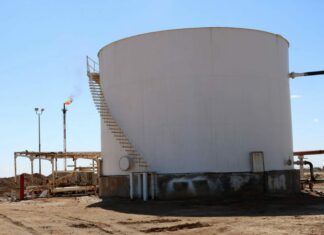
The United Nations High Commissioner for Refugees (UNHCR) in Lebanon announced its intent to facilitate the return of thousands of Syrian refugees to Syria, despite warnings from human rights organizations about the dangers returnees face under the regime of Bashar al-Assad. This move comes as Lebanon continues to grapple with internal crises, exacerbated by the presence of more than one million Syrian refugees.
UNHCR Assistant High Commissioner Ruvendrini Menekdiwela confirmed plans are underway to repatriate 30,000 Syrians “voluntarily” from Lebanon to Syria in the near future. Menekdiwela’s statement followed a meeting with Lebanese Foreign Minister Abdullah Bou Habib in Beirut, as the Lebanese National News Agency reported.
“We have seen a positive change in the way the [Assad] regime is handling the refugee situation in Lebanon,” Menekdiwela remarked. Adding that momentum is building toward facilitating “early recovery” for returnees, a process aimed at making their return “more sustainable.”
However, rights organizations are raising alarms over these developments. The Syrian Network for Human Rights (SNHR) and Amnesty International have repeatedly documented serious abuses by the Assad regime, including arbitrary arrests, enforced disappearances, and torture, all of which are risks for those who return.
In its latest report, SNHR confirmed that at least 214 Syrians were arbitrarily detained in August alone. Nineteen of these arrests involved individuals who had been forcibly returned from Lebanon. The report indicates the persistent threat to refugees who re-enter Assad-controlled areas, disputing claims from Damascus that returnees will be treated safely and fairly.
Lebanon, struggling with political paralysis and a deep economic collapse, has increasingly blamed Syrian refugees for its internal woes. Lebanese officials, including Bou Habib, have pressed the UN to “strengthen cooperation” with the Assad regime to expedite “repatriations.” Bou Habib reiterated the need for refugees to be returned “in a safe and dignified manner,” echoing longstanding government rhetoric about the refugee burden.
Lebanon has not officially registered Syrian refugees with UNHCR since 2015, following government directives. Moreover, reports of forced deportations, spearheaded by the Lebanese army, have surfaced in recent months. A report by the pro-Hezbollah newspaper Al-Akhbar in August detailed meetings between Lebanese and US officials discussing potential deportations. The widespread demonization of Syrian refugees has reached a fever pitch, with many Lebanese politicians attributing the country’s economic problems and security challenges to their presence.
An investigative report published by Enab Baladi last May further explored how Lebanese political circles have increasingly portrayed Syrian refugees as scapegoats for Lebanon’s economic downturn, while the nation remains embroiled in both internal and regional conflicts.
Despite Lebanese and UN statements touting progress, the reality for returnees remains perilous. Syria continues to be unsafe, according to multiple international watchdogs. Amnesty International reaffirmed in May that no area of Syria can be deemed safe for returning refugees, as violence, repression, and insecurity especially persist in regime-controlled regions.
Fadel Abdul Ghani, head of SNHR, has consistently denounced the narrative pushed by Damascus and its allies. “What [Assad’s Foreign Minister Faisal Al-Miqdad] is saying is a clear lie,” Abdul Ghani said in an interview with Syria TV, referring to the regime’s claims of welcoming returnees and dropping charges against them. He emphasized that arbitrary detention, torture, and enforced disappearances remain state policies in Syria, not isolated incidents.
Abdul Ghani cited ongoing violations of international law, including Assad’s use of anti-terrorism courts and unaccountable security services, which continue to target civilians and returnees alike. The UN-backed Independent International Commission of Inquiry on Syria echoed these concerns in a report delivered to the Human Rights Council on July 3. Paulo Sergio Pinheiro, the commission’s chair, warned that returnees face significant risks, including arrest and disappearance, and many find their homes destroyed or inaccessible upon their return.
The UN’s decision to cooperate with both the Lebanese government and the Assad regime on refugee returns has sparked criticism from advocacy groups. Human rights activists argue that repatriation efforts, framed as “voluntary,” are often coerced by deteriorating conditions in Lebanon, where refugees face increasing hostility, poverty, and discrimination.
The UNHCR’s role in the returns process places the organization in a delicate position, with critics questioning how it can ensure safety for returnees given the documented abuses by Assad inside Syria. Pinheiro’s July 3 report emphasized the ongoing nature of these threats, including arbitrary detention and extortion by regime-aligned militias.








